Publications
Articles, publications, books, tools and multimedia features from the U.S. Institute of Peace provide the latest news, analysis, research findings, practitioner guides and reports, all related to the conflict zones and issues that are at the center of the Institute’s work to prevent and reduce violent conflict.
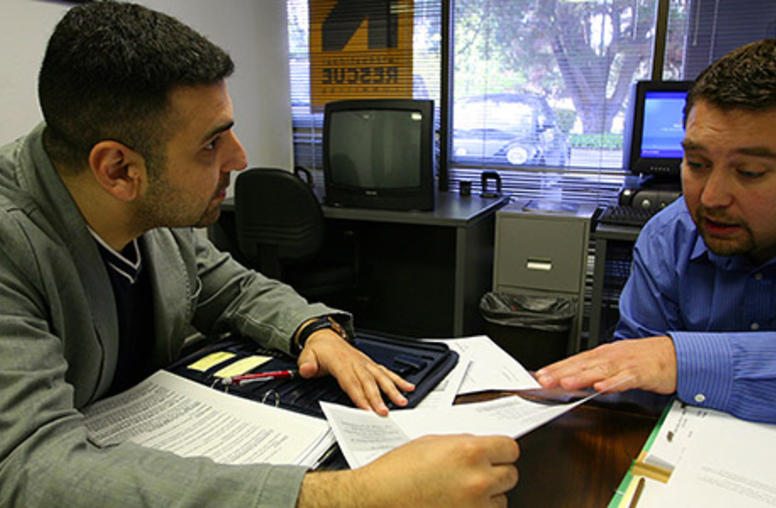
Panel Urges New View of Middle East Refugees
The refugee crisis that has spread to Europe and the breakdown of the Middle East’s century-old political order demand new thinking about the economic role of displaced people and a reassessment of donor strategies to rebuild societies in conflict, a working group convened by the U.S. Institute of Peace concluded. The panel’s report, developed under USIP’s Manal Omar and Elie Abouaoun as part of Atlantic Council’s Middle East Strategy Task Force, calls for refugees to be viewed as potential e...
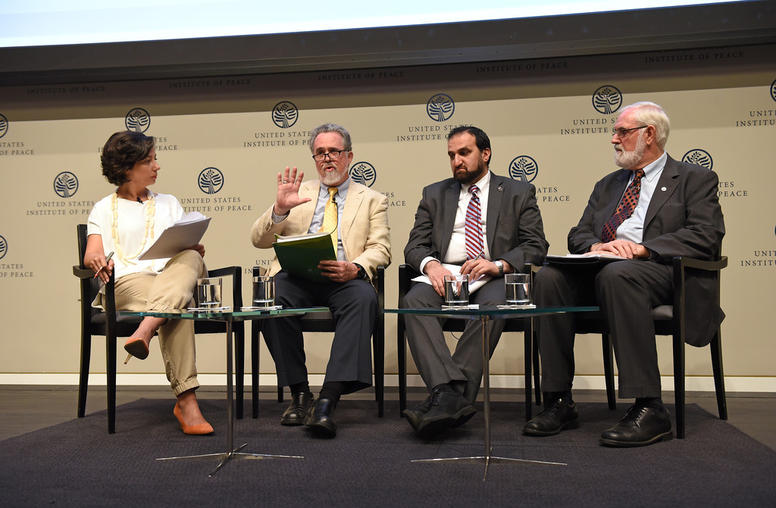
Humanitarian Aid: ‘Radical Change’ After Istanbul?
The two-day World Humanitarian Summit held recently in Istanbul drew criticism for the absence of top global leaders, but it actually broke ground in several ways, experts said in a discussion hosted by the U.S. Institute of Peace and Oxfam America. The summit spotlighted the need for “radical change” in a relief system built for the era after World War II rather than today’s small wars, insurgencies and fragmenting states that have unleashed the second-biggest flood of displaced people in hi...
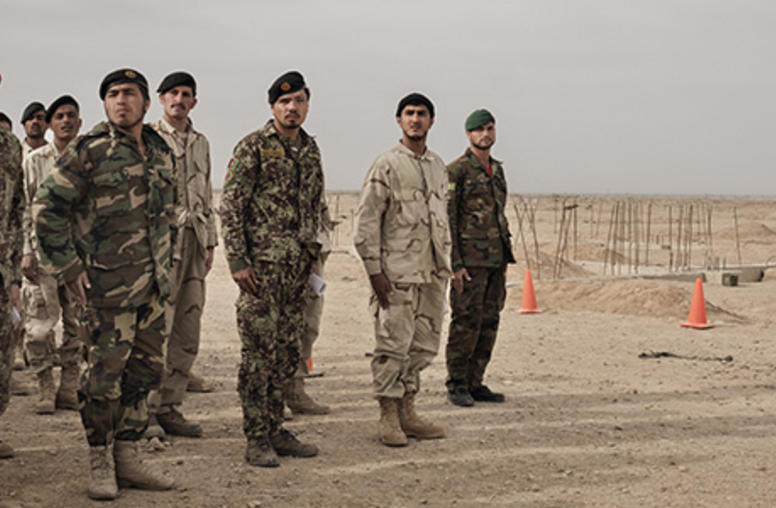
Q&A: Obama’s Troop Decision and Afghanistan’s Stability
Today, President Obama announced that he would extend the presence of roughly 8,400 U.S. troops in Afghanistan through the end of his term in January 2017, revising previous plans to cut force levels to around 5,500 soldiers at the end of the year. Afghanistan will be among the top issues for the NATO Summit of leaders in Warsaw, taking place later this week on July 8-9. USIP Vice President for Asia Programs Andrew Wilder, who recently returned from Afghanistan, discusses the issue of troop n...
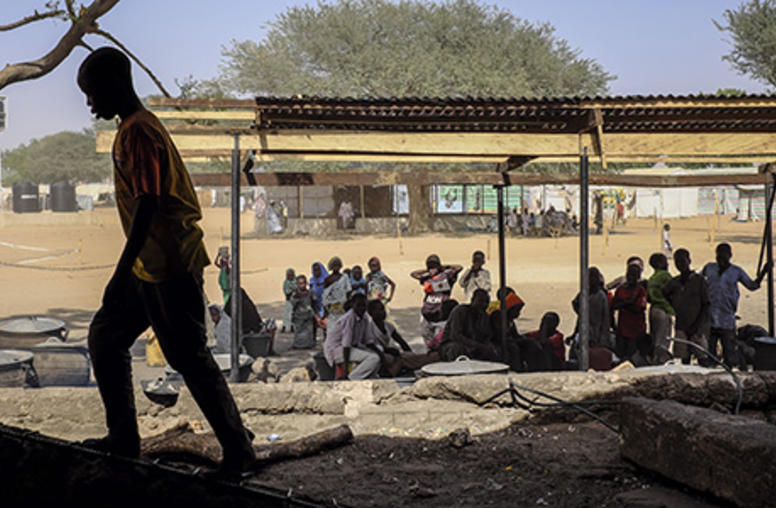
Nigerian Governors Set to Discuss Paths to Progress
The urgent challenges for Nigeria’s powerful northern state governors range from addressing a humanitarian crisis sparked by Boko Haram’s insurgency to boosting economic growth with alternatives such as agriculture to make up for declining oil revenue, Johnnie Carson, a senior advisor at the U.S. Institute of Peace, said ahead of a governors’ symposium to be held at the Institute next week.
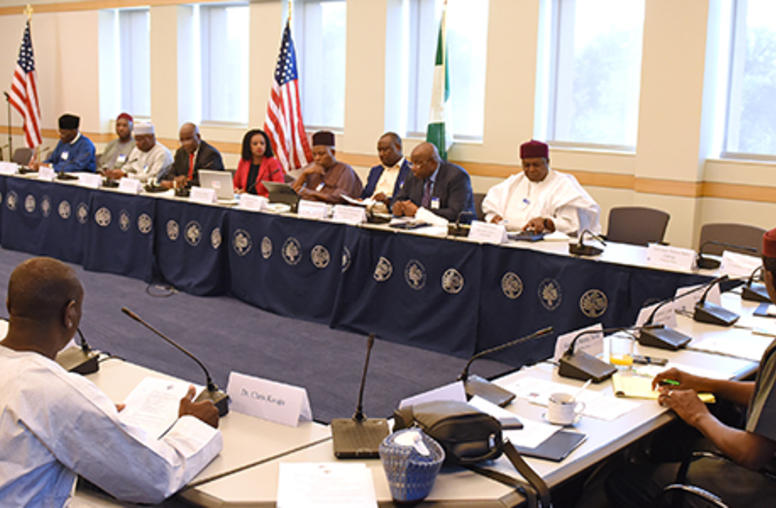
Nigerian Governors on Ways to Halt Crises, Boko Haram
A dozen governors from northern Nigeria say their region’s crises—warfare, poverty and millions of uprooted people—can be ended only with initiatives for education, reconciliation among rival groups, and the political inclusion of minorities and women. As Nigeria works to repair and build relations between police and communities, several governors said, the country’s federally run police system should be complemented with state or local police forces. The elected state governors, who wield im...
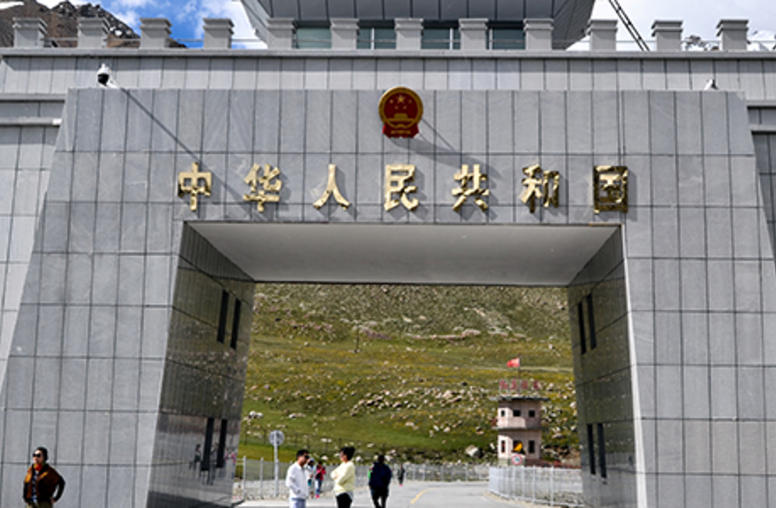
China-Pakistan Economic Corridor: A Road to Peace?
Three weeks ago, trucks carrying goods from China began offloading containers to ships at the Pakistani port of Gwadar, marking the operational opening of the Chinese built-and-financed China-Pakistan Economic Corridor (CPEC). The scale of the $51 billion infrastructure scheme will change Pakistan in ways that offer hope for easing its internal conflicts and its destabilizing fear of international isolation, experts said in a discussion at the U.S. Institute of Peace.

Gordon Peake on COP28 and Climate Financing
As COP28 continues, it’s estimated that the world needs to invest $5.9 trillion to stave off climate change. “The big question now is … who’s going to pay for all this,” says USIP’s Gordon Peake, adding that “we also need to tamp down the use of fossil fuels” to prevent the bill for growing even more.
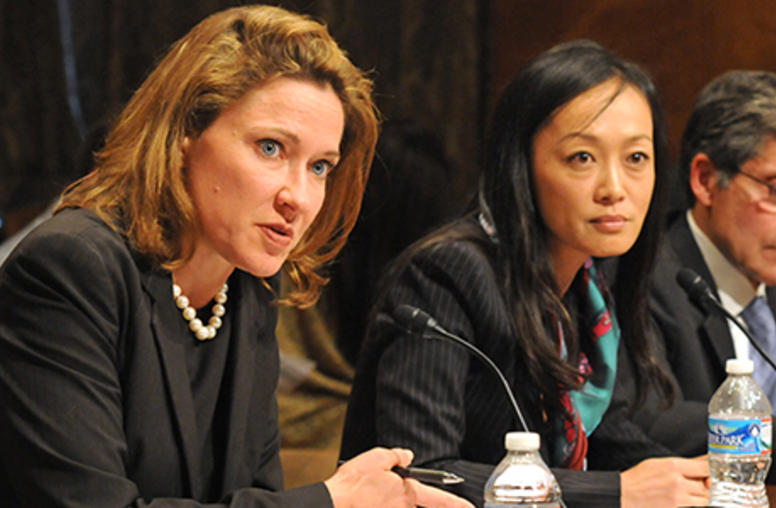
Testimony before the U.S.-China Economic and Security Review Commission
Stephanie Kleine-Ahlbrandt, director of USIP's Asia-Pacific Programs, testifies before the U.S.-China Economic and Security Review Commission hearing on China’s Relations with North Korea.
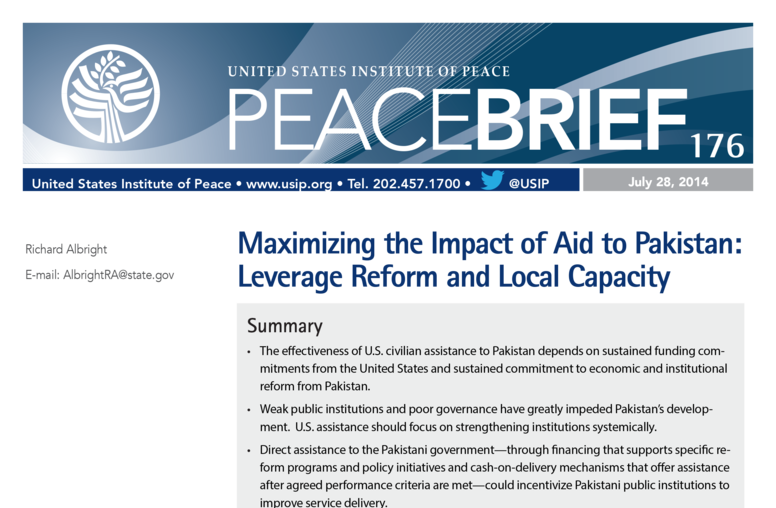
Maximizing the Impact of Aid to Pakistan: Leverage Reform and Local Capacity
Overcoming Pakistan's many challenges, and meeting the development needs of its people, requires working through the institutions of Pakistani governance if sustainable impacts are to be achieved. U.S. aid, if offered consistently and in support of systemic institutional reform, can have a valuable catalytic role to assist and incentivize these efforts.
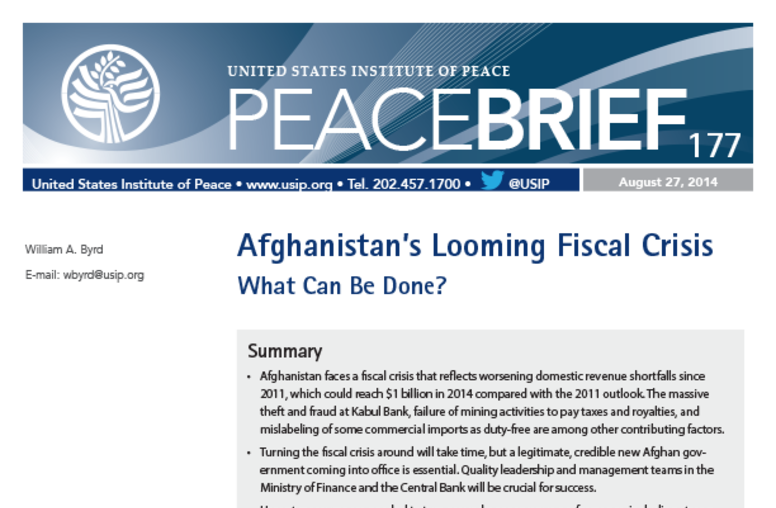
Afghanistan’s Looming Fiscal Crisis: What Can Be Done?
Afghanistan faces a fiscal crisis due in large part to worsening domestic revenue shortfalls. Averting this crisis will require strong leadership from the new Afghan government that will be replacing the Karzai administration. The country’s revenue system and collections need to be improved, corruption reduced, new revenue sources developed and expenditures cut. More international aid also is needed to help stabilize Afghanistan’s budget as the government undertakes these reforms.